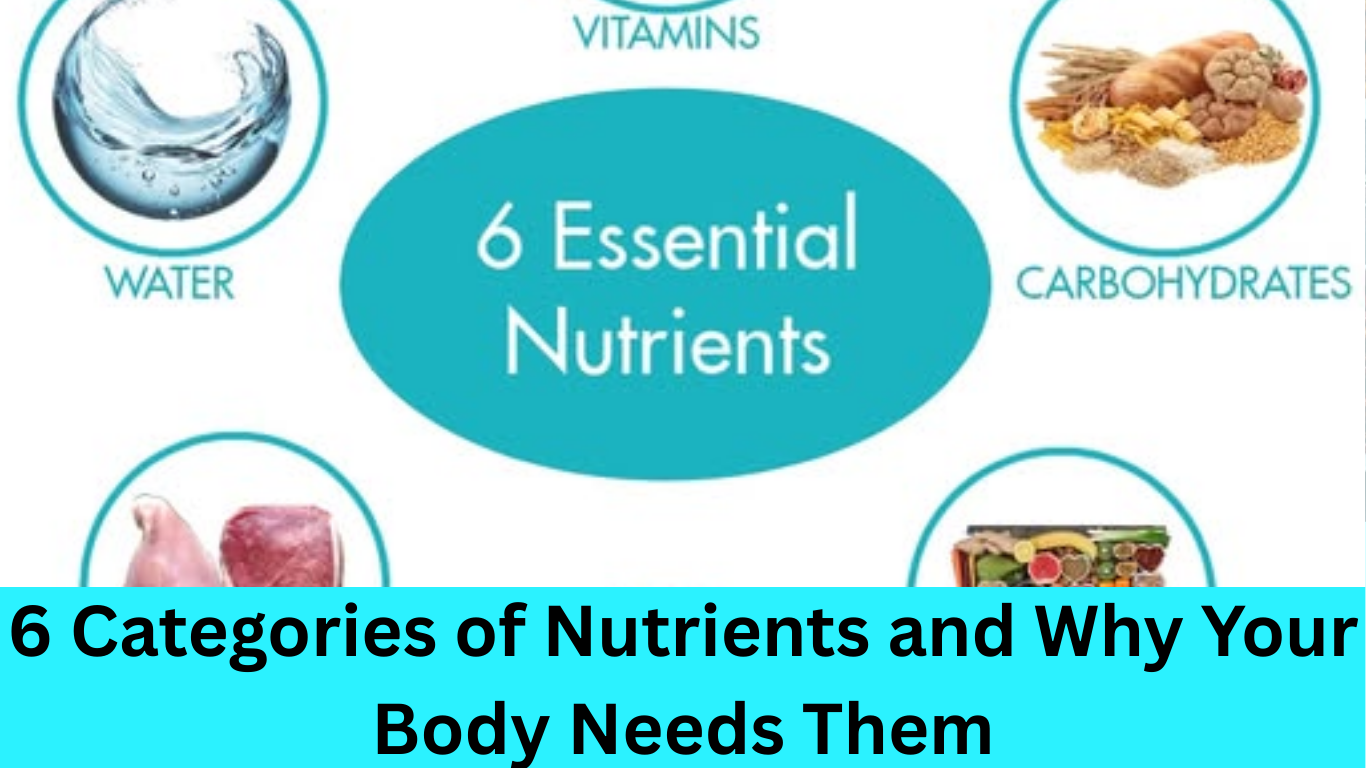Maintaining optimal health hinges upon a balanced diet rich in essential nutrients. These nutrients serve as the building blocks for bodily functions, growth, repair, and overall vitality. Understanding the six primary categories of nutrients—and why your body requires each—is fundamental to fostering well-being and preventing nutritional deficiencies. This article explores each nutrient category in depth, shedding light on their vital roles and sources.
- Carbohydrates: The Body’s Main Energy Source
Carbohydrates are organic compounds composed of carbon, hydrogen, and oxygen. They are the body’s preferred source of energy because they are efficiently converted into glucose, the fuel that powers cellular functions.
Why Your Body Needs Carbohydrates:
- Provide quick energy for daily activities and brain function.
- Support muscle activity and replenish glycogen stores after exercise.
- Supply dietary fiber, which aids digestion and supports gut health.
Sources:
- Whole grains (brown rice, quinoa, oats)
- Fruits (apples, berries, bananas)
- Vegetables (sweet potatoes, corn)
- Legumes (beans, lentils)
- Proteins: The Building Blocks of Life
Proteins consist of amino acids, some of which are essential and must be obtained through diet. Proteins are indispensable for growth, repair, and the synthesis of enzymes, hormones, and other critical molecules.
Why Your Body Needs Proteins:
- Repair tissues and build muscle mass.
- Produce enzymes that catalyze biological reactions.
- Form antibodies that support immune function.
- Serve as a secondary energy source during prolonged physical activity.
Sources:
- Meat, poultry, and fish
- Eggs and dairy products
- Legumes and soy products
- Nuts and seeds
- Fats: Essential for Energy and Cellular Health
Dietary fats are composed of fatty acids and glycerol and play multifaceted roles beyond energy provision. Healthy fats contribute to hormone production, cell membrane integrity, and the absorption of fat-soluble vitamins.
Why Your Body Needs Fats:
- Provide a concentrated energy source.
- Protect vital organs and insulate the body.
- Facilitate absorption of vitamins A, D, E, and K.
- Support brain health and cognitive function.
Sources:
- Avocados and olives
- Nuts and seeds
- Fatty fish (salmon, mackerel)
- Plant oils (olive oil, flaxseed oil)
- Vitamins: Catalysts for Vital Biochemical Processes
Vitamins are organic compounds needed in small quantities to regulate metabolic processes, maintain immune health, and support normal growth and development.
Why Your Body Needs Vitamins:
- Act as coenzymes or cofactors in metabolic reactions.
- Support vision, skin health, and blood clotting.
- Strengthen immune response and prevent chronic diseases.
Major Vitamins and Functions:
- Vitamin A (vision and immune function)
- B-complex vitamins (energy metabolism)
- Vitamin C (antioxidant and skincare)
- Vitamin D (bone health and calcium absorption)
- Vitamin E (antioxidant protection)
- Vitamin K (blood clotting)
Sources:
- Fruits and vegetables
- Whole grains
- Dairy products
- Sunlight exposure (for Vitamin D synthesis)
- Minerals: Inorganic Elements for Structural and Functional Integrity
Minerals are inorganic nutrients essential for structural components of the body and physiological processes such as nerve conduction and muscle contraction.
Why Your Body Needs Minerals:
- Build strong bones and teeth (calcium, phosphorus).
- Maintain fluid balance and nerve signaling (sodium, potassium).
- Support oxygen transport (iron).
- Facilitate enzyme functions (magnesium, zinc).
Sources:
- Dairy products and leafy greens (calcium)
- Meat and legumes (iron, zinc)
- Fruits and vegetables (potassium, magnesium)
- Nuts and whole grains
- Water: The Elixir of Life
Though often neglected in nutrient discussions, water is vital for survival, making up approximately 60% of body weight.
Why Your Body Needs Water:
- Regulates body temperature.
- Facilitates nutrient transport and waste elimination.
- Acts as a solvent for biochemical reactions.
- Maintains cellular hydration and joint lubrication.
Sources:
- Drinking water and fluids
- Fruits and vegetables with high water content (cucumbers, watermelon)
Conclusion
Each category of nutrient fulfills unique and indispensable roles that collectively ensure the body functions optimally. Incorporating a diverse array of whole foods into your diet can provide the necessary balance of carbohydrates, proteins, fats, vitamins, minerals, and water. By understanding and prioritizing these six nutrient categories, you embark on a path toward sustained health, enhanced energy levels, and reduced risk of chronic disease. Nourish your body wisely, for it is the foundation of your well-being.
